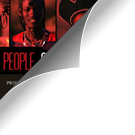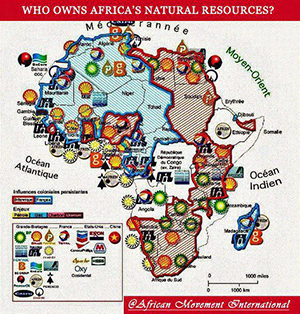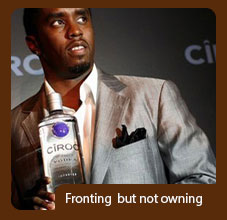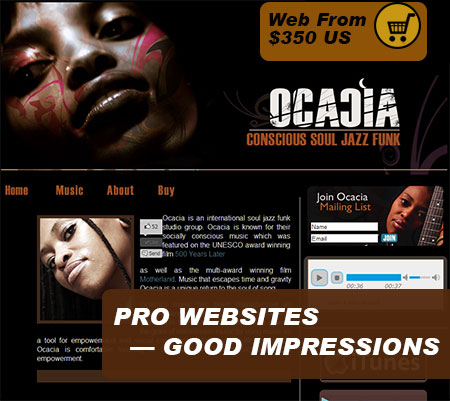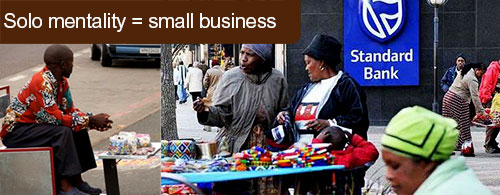

- SLAVERY
- >>African Holocaust
- >>Slavery in America
- >>Arab Slave Trade
- >>Jewish Slave Trade
- >>Slavery Revolts
- >>Modern Slavery
- >>Mental Slavery
- CULTURE
- >>Culture Complex
- >>Scripts of Africa
- >>Rites of Passage
- >>Kwanzaa
- >>African Agency
- >>Language & Africa
- >>Music and Dance
- IDENTITY
- >>African Race
- >>Consciousness
- >>African Languages
- ANCIENT AFRICA
- >>African Kingdoms>>Ptahhotep of Egypt
- PAN-AFRICA
- >>Business & Africans
- >>African Cinema
- >>War and Religion
- >>Art of Revolution
- >>Garvey Economics
- >>African Leaders





 |

- African Kings and Queens
- African Marriage
- Consciousness
- White Supremacy
- Scripts of Africa
- Business & Africans
- ICC & Africa
- Intellectual Property
- Libation in Africa
- Malcolm on Revolution
- African Fundamentalism
- Facts About Africa
- War and Religion
- Death of African Languages
- Garvey Economics
- Cabral Theory
- NGO and Development
- Garvey Legacy
- Willie Lynch Hoax
- Malcolm OAAU
- Ethics of the Reparations
- Afrocentrism Pseudohistory?
- Marley Film Review
- Abolition and Wilberforce
- Black Panther Critique
- Jews and Slavery
- Gay Rights
- Failure Of African Leadership
- Capitalism or Socialism?
- Female Genital Mutilation
- Failure to Engage
- Libya Invasion
- Dubois: Souls of Black folk
- Slavery in America
- Amilcar Cabral
- Agency and Africa
- Mis-Education of the Child
- African Revolt
- The Flag of African Cinema
- The Politics of Liberation
- White Supremacy
- The Horrors of 500 Years
- Africa and the Rise of Islam
- Why Kwanzaa
- Ptahhotep Ancient Egypt
- Seen But Never Heard
- African Classical Music
- South Africa: 10 Years On
- Music and Dance in Religion
- White Abolition of Slavery
- A Threat to Black Studies
- Art of Revolution
- African Influence in Barbados
- Origins of Voodoo
- Black Out White Wash
- Ethiopian Slave Trade
- Darfur Report
Until lions tell their tale, the story of the hunt will always glorify the hunter
– African Proverb
Power concedes nothing without a demand. It never did and it never will
– Frederick Douglass
The most pathetic thing is for a slave who doesn't know that he is a slave
– Malcolm X
Every man is rich in excuses to safeguard his prejudices, his instincts, and his opinions.
– Ancient Egypt
The critical issue of business in the African world is pertinent in an era where globalization is an ever more encroaching phenomenon, and marginalization of groups failing to engage in business is creating greater economic disparity.
– 'Alik Shahadah
Every generation must, out of relative obscurity, discover its mission, fulfill it, or betray it
– Fanon
We are not Africans because we are born in Africa, we are Africans because Africa is born in us.
– Chester Higgins Jr.
Leave no brother or sister behind the enemy line of poverty.
– Harriet Tubman

If we stand tall it is because we stand on the shoulders of many ancestors.
– African Proverb
If we do not stop oppression when it is a seed, it will be very hard to stop when it is a tree.
– ' Alik Shahadah
If the future doesn't come toward you, you have to go fetch it
– Zulu Proverb
|
|||||||||||||||||||||||||||||||||||||||||||||||||||||||||||||||||||||||||||||||||||||||||||||||||||||||||||||||||||||||||||||||||||||||||||||||||||||||||||||||||||||||||||||||||||||||||||||||
The business world is Darwinism in savage motion, it is unforgiving and truly survival of the fittest. It is a dinner table, but of diminishing opportunities, but exploitation of these opportunities requires progressive thinking, and an investment in infrastructures. The threshold and standards of work, and the quality of our work ethic become critical in competing in this new world. Professionalism is critical in all of this, and in our Pan-African space, unity ultimately means pooling resources and intelligence and taking advantage of every opportunity to advance the majority. (Shahadah) Typical comment: Business is based on capitalism and the enemy in our society. I don't even care for money its slavery disguised as freedom in our society.
The solution is complete ownership of the products/services that we use to live in a productive way. Creating business and employing our own people, and therefore empowering our people, creating wealth in the broadest sense and retaining that wealth within our own communities. The doors in which we traditional hemorrhage wealth to other communities must be closed off. [3] Our communities have been sold a concept of freedom that empowers "the other." But ownership is central to freedom and there is no true concept of freedom outside of an economic framework.[3] So when we wear clothing, buy food, go to the doctor, buy a book or film on Africa, go the mechanic it is not freedom if not part of our own economic web. The failure to not only own but also to run businesses is connected to the inherited legacy of enslavement and manifested in modern mental slavery. The root symptom is a tendency towards myopic vision, and being non-committal.
House of Marley is yet another example of a "partnership" where HoMedics (a Spa company) is really licensing the Marley name. So we see a new range of cool Marley branded speakers and say "WOW, Bob would be proud." But then we needed to know what African scientist is behind all these new Marley products? What African genius creates any aspect of that brand? Turns out none; It is a White company licensing their name and giving them a cut. African people are happy, delighted even, to front. They care nothing for ownership of the entire process of production as long as their faces are plastered on the front cover of the brand, leaving the real headache of counting profits to Europeans and others. Most of those so-called Black record labels (like Codeblack) are subs of majors and the fronters get paid a salary. We need to know this because a lot of the time we have pride in businesses we do not own. And because people are satisfied by emotional reactionary "feel good" they get pride in fronters more than real CEO who may be behind the scene. For many it is only what you can see, and hence this exploitation is enough. If you purchased products made in Africa from 10 African business and they all broke after two days of purchase your mind naturally creates an association; African= Bad. You then purchase 10 products from European and Japanese businesses (made in those countries) and they all work for 10 years. You create another relationship Foreign = Better. Every time Africans, give a bad service, make a cheap low quality film, make weak products, a vicious cycle of inferiority is being perpetuated. It is then critical for Africans to give extra attention to making quality products and offering exceptional services. Especially when the entire world is expecting things of African origin to be inferior. OBSTACLESTen basic obstacles present themselves to the African. And these obstacles cause failure before we even start to trade.
What this adds up to is a general lack of representation of African People in the business world, and even where we are represented—a lack of diversity in business models. What it also means is that the level of business Africans can engage in at any serious level are always one man secondary business, rarely primary businesses. This is because solo favors the person who cannot work with others; it favors the person with no confidence to expand and no vision to see opportunities beyond the length of their nose. It is easy to have a business with yourself as the only client; i.e. a record company with one artist - the hand to mouth hawker shop on a street corner. Lack of trust prevents the street vendors from uniting and forming a larger, primary business. Lack of confidence translates into a lack of ability to secure skills and execute them in the real world. It takes confidence to set up a PLC or a LTD, LLC or Inc. If we cannot find a way to remedy this lack of confidence, we will always be sole traders employing only ourselves and working at break even. The Africans who learn to expand out of this mental trap are always the ones able to lean into their social networks and extended families. This is why Ethiopians and Somali people thrive, especially outside of their countries because they lend upon family structures (consciously practicing unity/umoja) to grow business beyond the secondary model. They can employ their cousins and brothers with trust to manage their business while they extend into other specialized areas like travel, business meetings etc. PROFESSIONALISM: Professionalism is a critical aspect of business--yet many use the term without observing its basic tenants. It is shocking that many people in business do not have basic skills like even the curtosy needed when sending a buisness email. "Do u have Dvds i could by.." or " i want some stuff on africa" An email should be properly formatted and be clear. People see emails like this and automatically click the junk mail button. Because what serious person sends a cold email to another business like this? Who are you, what do you want, be concise and clear, and never use ALL CAPITALS IN A MESSAGE. There are certain things that should never happen in the business world such as: "Oh...I thought you meant..." How is it possible, given the complexity and nuance of language (any language), for someone to--after the fact—assume what someone else thought and meant? The price for the laptop is $3,000 including VAT if ordered before the 21st of June Where is there room for "I thought you said?" So there are only two possibilities. 1. The person giving instructions has not properly expressed themselves and used language to clarify their statement. 2. The person hearing is not a serious, and has some hearing difficulties. Because it is pretty simple to (in the above example) say "Oh I thought you meant I could get it for $3000 in August." If you do not know—learn fast. The business world is not a teaching institution. Learn on your own time, research on your own time. Read things 10 times and make sure you understand, because if you mess up, you own the debt of messing up. PROGRESS: You cannot move into a new and bright future if you do not address the issues in the past. If someone has a punctuality problem and it remains unresolved, it will chase them where ever they go. And the bigger the project the more exaggerated the problem will be. There is no point in just changing projects, because the problem follows. Poor communication, poor professionalism must be nipped in the bud, long before expanding any project. STANDARDS: When two disparate people engage in business, it is critical for the weaker partner to quickly match the standard of the more advanced person. Business moves in the direction of greatest efficiency and best ways of doing things—they are rarely subjective. TECHNOLOGY: We live in a technologically rich world. Technology is the slave of the business minded person. It makes life easy, we have Wikipedia to research terms, we have Online lawyers to check contracts, we have PayPal, Google calendar, on and on. Make use of it. Let the flashy Blackberry or Tablet be a slave and service your development by keeping your organized—this is what they were design for—not being status symbols. COMMUNICATION: Nothing says "UNPROFESSIONAL" like bad communication- emails and phone numbers that are unavailable. Communication, so important it has to be mentioned more than once. Nothing says professional more than good communication, which includes good, well-written, punctual emails. Good communication builds confidence in your ability to be available at critical times. And many business fail, not because the product/service was bad, but because they did not communicate. If you business must fail, make sure it is not for a silly reason. Most emails should be replied to within a 2 -24 hour window. Tablets and smartphones should make replying to emails as easy as replying to text messages. Communication is a critical aspect of business, and one of the Achilles heels of the African world. No one can be do business if no effective communication systems exist. And the minute an organization/business publishes its contact page, it has an obligation to efficiency service that system. (African Holocaust About) From Art of Revolution Slaves and children expect things for free. Nothing in this world is free, and most people over the age of 7 know that things cost money, and that mommy and daddy have to go to work to pay for stuff. YouTube is not free; Facebook is not free. But during slavery you thought the food was free—it was not. We have this strange expectation that consciousness should be free. Especially when collective public work (like this free site) suffers because every nascent contributor, even for proofing the text on a DVD, wants (thinks they deserve) executive salaries. These same people who would not switch on a light for free, themselves demand a free world. Free products and services is certainly not the tradition of Marcus Garvey or Elijah Muhammad for rebuilding Africa. But the tradition of those ignorant of the economics of liberation. And such ignorance is slavery, because slavery was economic. And part of its inequity was it created wealth for one group at the expense of the other group. That group—the African group—legacy is to continue to inherit the bottom graph of every positive static and the top graph of everything terrible and wrong. Therefore it would be safe to posit economics is one of the most critical aspects of the legacy of the African Holocaust. Ignorance of economic is mental slavery. Those who fail to engage in a revolution with a capital E for economics are recycling oppression on themselves—not liberation. And who introduced this ridiculous myth of the pious pauper? Which nation used the model and entered the globalized world? Who took the African struggle from do for self, to depend on the other? Who profits from this? UNDERSTANDING BUSINESS
Business may be revolutionary but it is governed by internationally recognized standards and, similar to the professional engineer or filmmaker, is attached to a certain culture, which is very important when doing good business. Business does not care about our politics, although everything about business is political. The objective of business is capital creation, market share, products, services, etc. While the politics or ideals might be in the brand (say a film), when we come to the business table they are non-items. It is necessary for the culture of business to be cold; this is what makes it efficient. It is not an emotional space; it is a space for working on what best makes business better. Understanding this concept is critical, especially for African people who think business must be a mirror of their notions of culture—at the expense of business. So if your culture is not worrying about time—leave that culture out of your business. If culture means taking your clients on a tour before sitting down to do business, then more power to you—because it complements the productivity of business; this is the lens with which culture influences business culture. However, at the final table of business engagement clarity, punctuality, transparency, maturity, aka professionalism are international hallmarks of good business.
As African people, we are generally naturally a very relaxed people. And we bring this attitude into business. We also personalize things with excessive familiarity, which is good—but there is a time and place for this in business. All of this has a negative impact on professionalism. Business decision are made in business interest, there is no point being offended because you feel your ego was negatively wounded. Business is a professional environment. Reflexivity: Maturity means accepting responsibility and taking the steps to make right the situation. Failure to have reflexivity means failure to identify yourself as a problem or bottleneck in a business environment. And if you do not know yourself you cannot fix yourself. The attitude of many Africans in business is, in too many instances, lackadaisical, content with sub-standard, inferior service delivery and having no ethics beyond making money as fast as possible. What ethics do for a business is help the management think about its image and places stress on the need to have a good image, beyond making money. The investment in good quality products, services and standards in the end always converts into dollars. Smart business develops a proficient attitude towards quality, ethics, technology and education.
It is better not to have a website than a bad website. Having no website can be explained a hundred ways, a bad website can only be explained one way—you are not ready! Websites are the new offices of our generation. Companies international prestige is no longer in physical spaces but in online presences. Whether we are conducting business at the shop level or globally, websites are the new offices of our generation. A company’s international prestige is no longer in physical spaces but in online presences. The customer usually formulates their first impression after visiting a website, therefore in a digital world; web presence is equal to status and world standing. A company or organization without a professional website is a company of the Jurassic era. Cyberspace is the new domain of business. People are making a habit of checking the veracity of a business by checking the online profile of not only the business, but also the businesspeople. Therefore, it is better not to have a website, than a terrible one. The website is a mirror of your own professionalism, attitude and understanding. A poor website communicates lack of organization, lack of resources and lack of good judgment. Their logic is why would you have such a poor site if you understood anything about the 21st century business environment? (Halaqah Media) If someone ask about your website, and your reply is my mate is working on it for me—you are not ready! Sure he said he was a designer, but what would you know about pro-web design—are you a designer? Then leave it to renown companies. All those RGB black 1980 looking sites were designed by "mates" and over confident DIY enthusiast, and the instant you hit them you know. And those free template sites?— Just know everyone without a budget and still in high school got one to. There are 10 thosand miles of unchartered territory between Pro and the dude around the corner. Do not take a chance for a few hundred bucks. You might not know good from bad—but your clientel will. * Halaqah Media does websites for $350 for small African organizations/businesses in a bid to foster development. * Website image courtesy of www.ocacia.com TEAMS AND BOTTLENECKS
In the business world, no good work exists outside of a good team. Working alone probably means you are working of failure . No great feat is accomplished by weak effort or poor discipline. The problem with any project is, when you have on your team people who will let you down in the 11th hour, that weak link is the value of your team (lowest sub-score). Even if nine people are 9/10, that one person who is 1/10 represents your profile. It takes more energy to manage a bad link than a good link, causing you to put energy into people who produce no (or substandard) work and ruin the entire project. (Shahadah)
There are ways we can learn from each other if we allow the principles of Pan-Africanism to work within our business models: Someone has something, you have something else. It is not leap of faith to suggest tangible partnerships. 10 African business need a place to work from, why not use the power of unity to collectively rent and share resources in a mutually beneficial way? How much would you save in a shared environment? If 20 African artist get together, they can save money of studio time,(or even own their own studio) or combine their marketing in a centralized space. There is no counter logic to this argument. Then why is it not being done? Because of a lack of basic common sense— a lack of unity—and silly egos. EXAMPLE: 4 African filmmakers graduate film school. One is an editor, one is a writer, one is a producer, and one is a cameraperson. They all have the same challenges of competing in the independent business environment. Despite the logic of forming one company and working as a team, they each go off and start 4 different companies in their area of expertise. 6 months later—all have failed. Not one of them have made a film. Unity has other advantage; peer review, bouncing, and sharing ideas. Failure to unite, is one reason African business do not stand a chance against the globalized world. Teams will always beat individuals. And if you are a one-person company, against a 20 person company you will not last. In addition, the new ideas and new ways of doing business from experience need to be shared. So someone discovers a cheaper way to ship globally, someone else discovers an online merchant website. This information stays within the individual domain, so the person who discovers a new shipping company does not know about the new online merchant website, the person who has discovered the online website will never finds out about the new global shipping company. They lose $1000 a month from not knowing.
EXAMPLE: 20 street vendors as opposed to competing in a hand-to-mouth fashion can form a collective, increase their bargaining power, buy a space—and shop their wares. But they do not, they stay small and fight over crumbs as weak individuals. Quality Driven Market
Customer Trust Low Expectations A lot of African methodologies, such as laborious bureaucracy, was inherited from the colonialism. But these same "masters" today have rigorously modified and streamlined the very systems entrenched in African practice. So tools are seen as objectives. But the meeting is not an objective, it is a tool to get to an objective. If it yields no results--then it has no use.
Making Meetings Work
Economic powerlessness is directly and inextricably tied to political powerlessness. The election of Africans to even the highest office, in America or otherwise, is useless if it does little or nothing to enhance the power of the Africans and the Diaspora community. It makes no difference if hundreds of us are 'fortunate' enough to gain positions of affluence, if millions continue to be marginalized and impoverished at the same time. An economic system is defined on businessdictionary.com as "an organized way in which a state or nation allocates its resources and apportions its goods and resources". The ability to organize an effective economic system even as an ethnic minority has been demonstrated by Jewish, Arabs, Indians, and Korean in America and by whites (another minority) in Africa, regardless of voting populations. Thus, proving that power and influence are derived from effective social organization and proper use of organized wealth.
RESOURCES "Blueprint for Black Power" Amos N. Wilson
|
|
